
Restarting Libya's Valuable Oil Exports Won't Be Easy
困難なリビアの高品質原油輸出再開
油田は次々に掘削をし続けるものだとは知らなかった。人口が少ないので石油の収入で国の再建費用は賄えるのではないかと思うが、問題はスピードだ。克服すべき問題は多い。
by Christopher Joyce
August 24, 2011

Hussein Malla/AP
A Libyan oil worker at a refinery inside the Brega oil complex, in eastern Libya, on Feb. 26. Production at Brega has dropped by almost 90 percent amid the country's crisis because many employees have fled, and few ships are coming to the port. 2月26日、リビア東部のブレガ石油施設の精油所の従業員。ブレガの生産は、内戦が始まり労働者が逃亡し、船が入港しなくなったため、90%ほど減少した。
August 24, 2011
The light at the end of the tunnel for Libyans isn't just an end to the Moammar Gadhafi regime — it's also "light, sweet crude."
Oil provides most of Libya's income. But the revolution there has strangled exports for months and starved the country of revenue, and also temporarily bumped up world oil prices. So there's a lot of interest inside Libya and internationally in getting the country's oil wells up and running again.
リビアのトンネルの出口の光は、単にカダフィ体制の終焉だけではない、それは「スイート原油の灯り」でもあるのだ。
石油はリビアの国の収入の殆どを担ってきた。しかし、ここでの革命は何か月もの間輸出を閉ざし、この国の歳入を干上がらせ、また、一時的に世界の石油価格を高騰させた。 それゆえリビア国内はもとより国際的にも、この国の油田を再開し、操業することに対する関心は高い。
The question is, when?
Libya's neighbors in the Middle East provide some clues to a time frame. Kuwait and Iraq are both big oil exporters that dissolved into conflict. Oil wells there were shut down or sabotaged, and world prices rose. It was years before their governments could get oil production back to pre-conflict levels.
Libya only exports about 2 percent of what the world uses. But nonetheless, as economist Rayola Dougher of the American Petroleum Institute points out, 2 percent is actually a lot in an oil market that has practically no surplus. "It's that margin of difference between supply and demand in the world," she says, "and when you take off that supply at a time when the world's demand was growing, that can have a very big impact on the price."
問題はいつか?である。
リビアの中東近隣国は、その時間枠について幾つかの手掛かりを示している。クウェートとイラクは共に代の石油輸出国であり、紛争に見舞われた。両国の油田は閉鎖されたり、操業停止となり、世界の石油価格は上昇した。両政府が生産を、紛争以前の状態に戻すのに数年を要している。
リビアは世界の石油使用量の僅か約2%しか輸出していない。 しかし、それにもかかわらず、アメリカの石油研究所のエコノミストであるレヨーラ・ドウガーは、2%は現実的に余剰のない石油市場では、実質上かなりの量なのだと指摘する。「それは世界の需給の差の貴重な余剰であり、その余剰を欠くと、需要が増大し、価格に大きな影響がでるのです。」
That's especially true if what you're selling is Libya's light, sweet crude. That's what refiners prefer, especially in Europe, since it's easier to turn into gas and diesel.
Prices have dropped some, since the revolution broke out as the world's economy drooped and Saudi Arabia increased output. But as economies improve, demand for oil will rise. Will Libya's wells be there to take the pressure off prices?
それは特にリビアの軽スイート原油を売っている場合そうなるのです。それは欧州の精油業者が特に好んでいる原油で、ガスとディーゼルに容易に転換できる原油だからです。
革命が勃発して以来、世界経済が落ち込み、サウジアラビアが原油を増産したので、石油価格はいくらか下落しています。 しかし、経済が持ち直せば、需要が増します。 その時点で価格上昇圧力を吸収することがリビア油田にできるでしょうか?
Problems Facing Production 生産が直面する問題
Technically, it shouldn't be too hard to get most wells started — assuming they weren't sabotaged or damaged. That's especially true for wells that naturally produce oil without a lot of help from pumps.
技術的に、妨害や大きな損傷がなければ、殆どの油田を再開するのはそんなに難し過ぎることではないはずです。 油田にとって、それらが、普通ポンプの大きな助けを受けずに生産しているのは特に事実なのです。
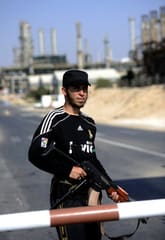
A Libyan rebel stands guard at the entrance to the Zawiya oil refinery, about 30 miles west of Tripoli, on Aug. 19. Rebels have taken complete control of the key oil refinery. Before the conflict, Libya supplied 2 percent of the world's oil, but restarting oil field operations won't be a simple task. 8月19日、リビアの反乱軍戦士がザウィアの石油精製施設の入り口を警護している。 それはトリポリの西30マイルに位置し、反乱軍がこの重要な施設を完全に支配している。紛争が始まるまえ、リビアは世界の2%の原油を供給していたが、油田の操業を再開するのは単純な仕事ではない。
"Restarting that type of well can be as simple as opening one valve and flipping one switch," says Daniel Hill, a petroleum engineer at Texas A&M University.
But restarting wells doesn't mean Libya can pump the 1.5 million barrels a day it used to. Libya's oil operation has been standing still for months when it should have been drilling.
「そのタイプの油田を再開するのはバルブを開き、スイッチを入れる程度の簡単さです」とテキサスA&M大学の石油技術者であるダニエル・ヒルは言う。 しかし、油田の再開は、即リビアがかつての日量1.5百万バレルを産出できることを意味しないのです。 リビアの原油工場の操業は、本来掘削を続けなければならないのに、何か月も停止していました。
"In an oil field operation, it's not just, you know, you go drill a few wells and turn them on and let them go for 10 years," Hill says. "There's a constant drilling of new wells occurring, replacing wells that are abandoned."
Libya faces another problem: Most of its oil workers are foreigners who fled the country months ago.
Nonetheless, international oil companies are eager to get back into Libya. As Dougher from the American Petroleum Institute points out, the biggest obstacle they'll face will be political.
「油田での操業というのは、幾つかの油田に行って穴を掘り、開通させ、それで10年間原油が、そこから出てくるといったものではないのです。 終わった油田に代わる新しい油田を常に掘削していくことが必要なのです。」とヒルは言う。
リビアには別の問題もある。それは殆どの労働者が外国人であり、彼らは自国へ何か月も前に逃げてしまっているのである。
それにも関わらす、国際的な石油会社はリビアに戻りたいと強く思っている。 そこで彼らが直面する大きな渉外は政治的な問題だと、アメリカ石油研究所のドウガーは指摘する。
"It really is the instability — the political instability there — and no one really knowing who's going to be in charge, and how this is going to unfold, and what this is going to look like," she explains.
In fact, Libya's politics have long kept the country from pumping as much oil as it did in the 1960s. Jim Burkhard, an oil analyst at IHS Cambridge Energy Research Associates, says when Libya's oil fields opened up again to foreign companies about seven years ago, it was hard going.
「それは実際不安定です。―― 政治的不安定があります。――誰も、だれが担当者なのか知りません、そして今後どう展開するのか、どのようになるのかも・・・」と彼女は説明する。
実際に、リビアの政治は1960年代に産出した量と同じ量を、長い間キープしてきました。 IHSケンブリッジ・エネルギー研究所員のジム・バーカードは、リビアの油田は7年前に外国の会社にオープンになりましたが、なかなか遅々として進みませんでしたと説明する。
"Some of the contracts that were signed in Libya were very advantageous for the Libyan government," says Burkhard, "but they weren't very attractive for some of the investors, so that had the impact of slowing some of the investment."
Even if it takes years to restore high levels of production, though, Burkhard points out that at least the country has a ready asset.
"Libya does have an advantage over Egypt or Syria in that they have a very important asset, namely their oil fields, and they have a relatively small population," Burkhard says.
Rebel leaders have been quoted saying they want foreign oil investment. For the moment, oil analysts say: Let's wait and see.
「リビアで結ばれた契約のいくつかは、非常にリビア政府に有利なものだったので、投資家には殆ど魅力がなく、投資意欲ブレーキをかけてしまいました。」とバーカードは言う。 リビアが高いレベルの生産を回復したとしても、それは単にリビアが良い資産施設が準備できたというに過ぎません。
「非常に重要な資産を持っているという点で、リビアはエジプトやシリアに優位性を持っています。それは油田と比較的少ない人口です。」と彼は言う。
反政府軍の指導者たちは、外国の石油投資を望んでいると言ったと伝えられている。しばらくの間、石油アナリスト達は、こう言うだろう。 「様子見だ!」
困難なリビアの高品質原油輸出再開
油田は次々に掘削をし続けるものだとは知らなかった。人口が少ないので石油の収入で国の再建費用は賄えるのではないかと思うが、問題はスピードだ。克服すべき問題は多い。
by Christopher Joyce
August 24, 2011

Hussein Malla/AP
A Libyan oil worker at a refinery inside the Brega oil complex, in eastern Libya, on Feb. 26. Production at Brega has dropped by almost 90 percent amid the country's crisis because many employees have fled, and few ships are coming to the port. 2月26日、リビア東部のブレガ石油施設の精油所の従業員。ブレガの生産は、内戦が始まり労働者が逃亡し、船が入港しなくなったため、90%ほど減少した。
August 24, 2011
The light at the end of the tunnel for Libyans isn't just an end to the Moammar Gadhafi regime — it's also "light, sweet crude."
Oil provides most of Libya's income. But the revolution there has strangled exports for months and starved the country of revenue, and also temporarily bumped up world oil prices. So there's a lot of interest inside Libya and internationally in getting the country's oil wells up and running again.
リビアのトンネルの出口の光は、単にカダフィ体制の終焉だけではない、それは「スイート原油の灯り」でもあるのだ。
石油はリビアの国の収入の殆どを担ってきた。しかし、ここでの革命は何か月もの間輸出を閉ざし、この国の歳入を干上がらせ、また、一時的に世界の石油価格を高騰させた。 それゆえリビア国内はもとより国際的にも、この国の油田を再開し、操業することに対する関心は高い。
The question is, when?
Libya's neighbors in the Middle East provide some clues to a time frame. Kuwait and Iraq are both big oil exporters that dissolved into conflict. Oil wells there were shut down or sabotaged, and world prices rose. It was years before their governments could get oil production back to pre-conflict levels.
Libya only exports about 2 percent of what the world uses. But nonetheless, as economist Rayola Dougher of the American Petroleum Institute points out, 2 percent is actually a lot in an oil market that has practically no surplus. "It's that margin of difference between supply and demand in the world," she says, "and when you take off that supply at a time when the world's demand was growing, that can have a very big impact on the price."
問題はいつか?である。
リビアの中東近隣国は、その時間枠について幾つかの手掛かりを示している。クウェートとイラクは共に代の石油輸出国であり、紛争に見舞われた。両国の油田は閉鎖されたり、操業停止となり、世界の石油価格は上昇した。両政府が生産を、紛争以前の状態に戻すのに数年を要している。
リビアは世界の石油使用量の僅か約2%しか輸出していない。 しかし、それにもかかわらず、アメリカの石油研究所のエコノミストであるレヨーラ・ドウガーは、2%は現実的に余剰のない石油市場では、実質上かなりの量なのだと指摘する。「それは世界の需給の差の貴重な余剰であり、その余剰を欠くと、需要が増大し、価格に大きな影響がでるのです。」
That's especially true if what you're selling is Libya's light, sweet crude. That's what refiners prefer, especially in Europe, since it's easier to turn into gas and diesel.
Prices have dropped some, since the revolution broke out as the world's economy drooped and Saudi Arabia increased output. But as economies improve, demand for oil will rise. Will Libya's wells be there to take the pressure off prices?
それは特にリビアの軽スイート原油を売っている場合そうなるのです。それは欧州の精油業者が特に好んでいる原油で、ガスとディーゼルに容易に転換できる原油だからです。
革命が勃発して以来、世界経済が落ち込み、サウジアラビアが原油を増産したので、石油価格はいくらか下落しています。 しかし、経済が持ち直せば、需要が増します。 その時点で価格上昇圧力を吸収することがリビア油田にできるでしょうか?
Problems Facing Production 生産が直面する問題
Technically, it shouldn't be too hard to get most wells started — assuming they weren't sabotaged or damaged. That's especially true for wells that naturally produce oil without a lot of help from pumps.
技術的に、妨害や大きな損傷がなければ、殆どの油田を再開するのはそんなに難し過ぎることではないはずです。 油田にとって、それらが、普通ポンプの大きな助けを受けずに生産しているのは特に事実なのです。

A Libyan rebel stands guard at the entrance to the Zawiya oil refinery, about 30 miles west of Tripoli, on Aug. 19. Rebels have taken complete control of the key oil refinery. Before the conflict, Libya supplied 2 percent of the world's oil, but restarting oil field operations won't be a simple task. 8月19日、リビアの反乱軍戦士がザウィアの石油精製施設の入り口を警護している。 それはトリポリの西30マイルに位置し、反乱軍がこの重要な施設を完全に支配している。紛争が始まるまえ、リビアは世界の2%の原油を供給していたが、油田の操業を再開するのは単純な仕事ではない。
"Restarting that type of well can be as simple as opening one valve and flipping one switch," says Daniel Hill, a petroleum engineer at Texas A&M University.
But restarting wells doesn't mean Libya can pump the 1.5 million barrels a day it used to. Libya's oil operation has been standing still for months when it should have been drilling.
「そのタイプの油田を再開するのはバルブを開き、スイッチを入れる程度の簡単さです」とテキサスA&M大学の石油技術者であるダニエル・ヒルは言う。 しかし、油田の再開は、即リビアがかつての日量1.5百万バレルを産出できることを意味しないのです。 リビアの原油工場の操業は、本来掘削を続けなければならないのに、何か月も停止していました。
"In an oil field operation, it's not just, you know, you go drill a few wells and turn them on and let them go for 10 years," Hill says. "There's a constant drilling of new wells occurring, replacing wells that are abandoned."
Libya faces another problem: Most of its oil workers are foreigners who fled the country months ago.
Nonetheless, international oil companies are eager to get back into Libya. As Dougher from the American Petroleum Institute points out, the biggest obstacle they'll face will be political.
「油田での操業というのは、幾つかの油田に行って穴を掘り、開通させ、それで10年間原油が、そこから出てくるといったものではないのです。 終わった油田に代わる新しい油田を常に掘削していくことが必要なのです。」とヒルは言う。
リビアには別の問題もある。それは殆どの労働者が外国人であり、彼らは自国へ何か月も前に逃げてしまっているのである。
それにも関わらす、国際的な石油会社はリビアに戻りたいと強く思っている。 そこで彼らが直面する大きな渉外は政治的な問題だと、アメリカ石油研究所のドウガーは指摘する。
"It really is the instability — the political instability there — and no one really knowing who's going to be in charge, and how this is going to unfold, and what this is going to look like," she explains.
In fact, Libya's politics have long kept the country from pumping as much oil as it did in the 1960s. Jim Burkhard, an oil analyst at IHS Cambridge Energy Research Associates, says when Libya's oil fields opened up again to foreign companies about seven years ago, it was hard going.
「それは実際不安定です。―― 政治的不安定があります。――誰も、だれが担当者なのか知りません、そして今後どう展開するのか、どのようになるのかも・・・」と彼女は説明する。
実際に、リビアの政治は1960年代に産出した量と同じ量を、長い間キープしてきました。 IHSケンブリッジ・エネルギー研究所員のジム・バーカードは、リビアの油田は7年前に外国の会社にオープンになりましたが、なかなか遅々として進みませんでしたと説明する。
"Some of the contracts that were signed in Libya were very advantageous for the Libyan government," says Burkhard, "but they weren't very attractive for some of the investors, so that had the impact of slowing some of the investment."
Even if it takes years to restore high levels of production, though, Burkhard points out that at least the country has a ready asset.
"Libya does have an advantage over Egypt or Syria in that they have a very important asset, namely their oil fields, and they have a relatively small population," Burkhard says.
Rebel leaders have been quoted saying they want foreign oil investment. For the moment, oil analysts say: Let's wait and see.
「リビアで結ばれた契約のいくつかは、非常にリビア政府に有利なものだったので、投資家には殆ど魅力がなく、投資意欲ブレーキをかけてしまいました。」とバーカードは言う。 リビアが高いレベルの生産を回復したとしても、それは単にリビアが良い資産施設が準備できたというに過ぎません。
「非常に重要な資産を持っているという点で、リビアはエジプトやシリアに優位性を持っています。それは油田と比較的少ない人口です。」と彼は言う。
反政府軍の指導者たちは、外国の石油投資を望んでいると言ったと伝えられている。しばらくの間、石油アナリスト達は、こう言うだろう。 「様子見だ!」










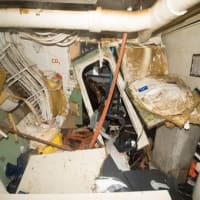



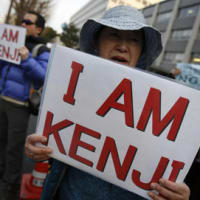
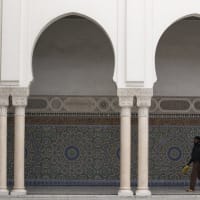
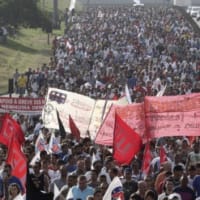



※コメント投稿者のブログIDはブログ作成者のみに通知されます